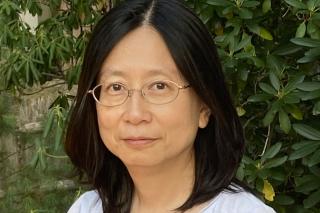Professor of Nutrition and Director of the Didactic Program in Dietetics Teresa T. Fung, ScD, RDN has been recognized by the Academy of Nutrition and Dietetics for her outstanding research. She spoke with us about this honor, her current research, and her advice for students.
Can you tell us about the Monsen Award and what it is like to be an awardee?
The Monsen Award is given once a year by the Academy of Nutrition and Dietetics, which is a professional organization for registered dietitians. It's named for Elaine Monsen, editor in chief of the Journal of the Academy of Nutrition and Dietetics, and is given to a member who has a substantial body of research that is important to nutrition and human health.
I did not know that I was nominated for the award, and I have no idea who nominated me. One day, I got an email informing me that I got the award. It was a complete surprise and I certainly did not expect it. Each year I read about the recipients and I'm very impressed by them, so now I can't believe that I'm one of them. Awardees tend to come from big research universities. I am very honored and grateful that the Academy also recognizes the work of a researcher at a small university.
What led you to specialize in nutrition?
I have always been interested in health-related disciplines. I am a very practical person, and I found nutrition to be a very practical discipline. Every day we eat, and every time you eat there is an opportunity to use nutritional knowledge. So even if you don't make it into a career it can be useful.
What is your current research?
I am looking into developmental frailty in the elderly. When an older person becomes frail, it is not a sudden process. Usually they get sick often and don't recover properly, and this is a drawn-out process. People are living longer now and we have wonderful medical advances to let people live independently. However, there is nothing better than prevention. These days, I focus my time looking into how diet can help prevent frailty in the elderly.
My current project is to evaluate the relationship between processed food and developmental frailty. Food is typically healthiest when it is closest to the way it was harvested, or, in the case of animal products, closest to the aftermath of extracting meat. When food is processed, many chemicals are added. For example, corn puffs are made of corn starch and then salt and other preservatives are added so that they can stay on the shelf for months. Bacon and sausage are highly processed too.
Sometimes processed foods have some health benefits, but they have many additives and good nutrients have been stripped in the processing. If we can teach the elderly how to eat, perhaps we can slow down the progression of frailty and help them live a long, healthy life. When it comes to the elderly, quality of life is very important.
What makes Simmons nutrition programs stand out from those at other institutions?
Our advantage is that we have a body of faculty with different specialties, and we can also work collaboratively. Our department is small, and students can explore different interests. At a larger university, you get faculty who are highly specialized, and the students working on research projects with them will work in a specialized area. We are broader. Our faculty are also clinicians, so we have experience in nutrition before becoming faculty. We like to bring in a practical perspective to our teaching, and our faculty are aware of real-life applications of knowledge. Students can do research as well as applied work.
What advice do you have for students wanting to pursue a path similar to yours?
Don't get a Ph.D. right away. If you are in a field that offers a clinical credential, make sure you get that first. Work a few years before thinking about your doctoral degree. I encourage students in nutrition to get a registered dietitian credential and work for a few years. Then you can go into research. When you are working, it becomes clearer what specific area you want to pursue.
I started my career as a clinician. I was in a hospital with sick people and I loved the hospital environment, but I also found that there were many patients with preventable diseases. There were many people suffering and experiencing a diminished quality of life and lifespan, and many of them had no nutritional knowledge. I realized that I wanted to be on the prevention side of things. During those clinical years, I became interested in nutritional epidemiology. These years of working before my Ph.D. program led me to what I wanted to pursue.

